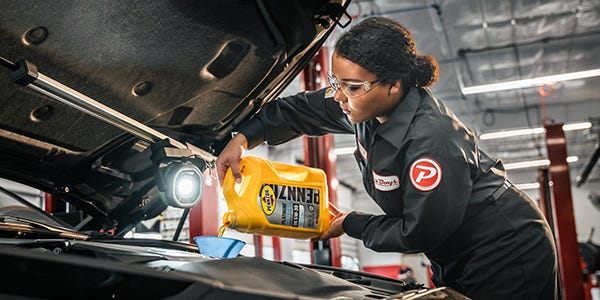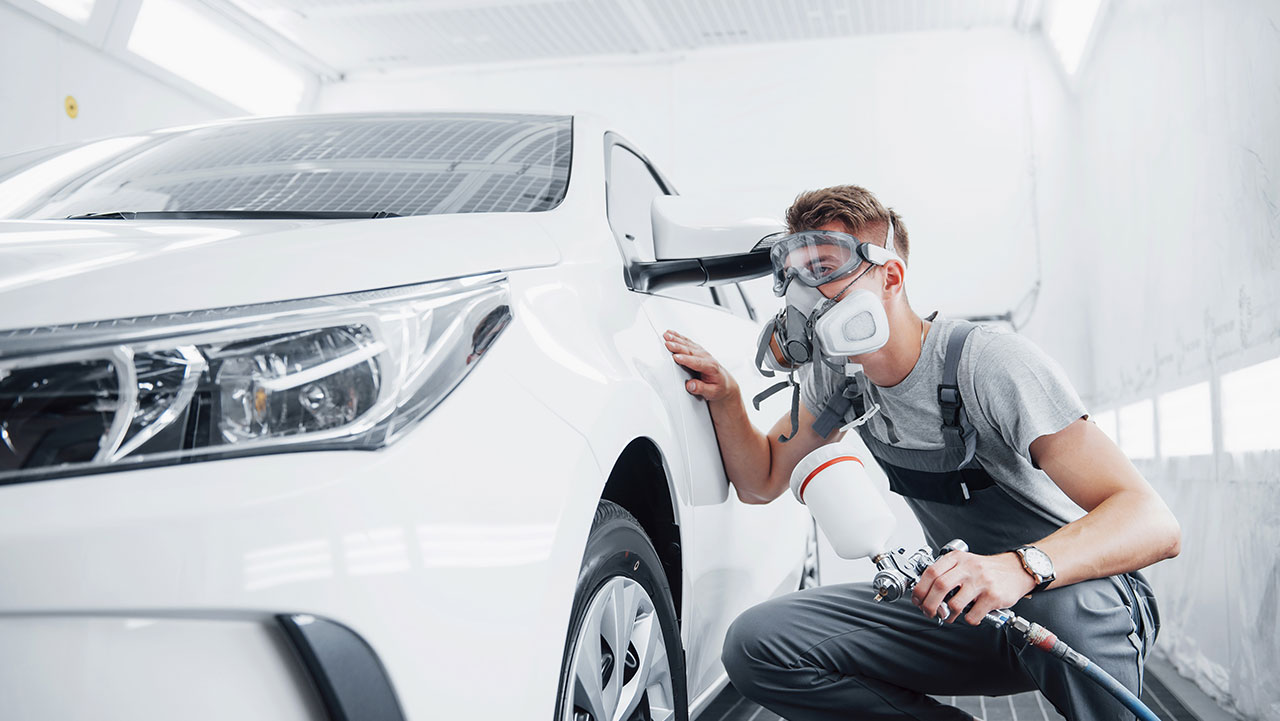All Categories
Featured
The rise of electrical cars (EVs) has brought around considerable improvements in lasting transportation, yet it likewise presents a growing concern: what happens to EV batteries when they are no longer useful? Repair shops have actually stepped into this space, supplying electrical vehicle battery reusing solutions to satisfy the demands of eco-conscious EV proprietors.
![]()
Environmental Security: Preventing harmful chemicals from contaminating soil and water. Source Healing: Removing multiple-use products like lithium and cobalt to lower the need for brand-new mining procedures. Power Efficiency: Recycling makes use of less energy than sourcing resources, adding to a reduced carbon footprint. As millions of EV batteries are anticipated to reach completion of their lifecycle in the coming decades, the need for reusing solutions has actually never been greater.
Collection and Safe Storage: Lots of repair work stores collect utilized EV batteries from clients and keep them safely until they can be carried to reusing facilities. Collaborations with Recyclers: Shops usually team up with specialized reusing firms that extract and repurpose important products. Repurposing Efforts: Some batteries, although no longer ideal for cars, can be repurposed for stationary power storage space options, a service some service center facilitate. 3. Partnerships with Makers and Recycling Programs. To enhance the recycling procedure, service center typically companion with EV producers and third-party recyclers. Instances include:
Manufacturer Programs: Brands like Nissan and BMW have applied battery recycling campaigns, utilizing qualified service center to handle and accumulate utilized batteries. Third-Party Recyclers: Firms like Redwood Materials and Li-Cycle collaborate with independent service center to reuse batteries from different EV brands. These collaborations make sure that recycling is dealt with sensibly and successfully, with minimal ecological effect.
Benefit: Clients can reuse batteries in your area without browsing intricate recycling networks. Expense Cost savings: Some stores supply trade-in debts or discounts on replacement batteries when clients reuse their old ones. Sustainability Guarantee: Partnering with trustworthy shops warranties that batteries are recycled in compliance with ecological guidelines. 5. Difficulties in Expanding Recycling Solutions. In spite of progression, there are difficulties to making battery reusing universally available:
Training Needs: Managing EV batteries securely needs customized knowledge and tools, which not all service center possess. Cost of Recycling: Transporting and refining batteries can be costly, posturing an obstacle for smaller sized stores. Minimal Infrastructure: In some regions, accessibility to reusing facilities is still underdeveloped. Governments and suppliers are functioning to attend to these concerns through rewards, funding, and study right into more efficient reusing modern technologies.
![]()
Conclusion. Yes, service center supplying electrical vehicle battery recycling are coming to be an important part of the EV ecological community. By working together with producers, recyclers, and ecological programs, these services are assisting to ensure that the transition to electric transport is as sustainable as feasible.
For EV proprietors, picking fixing shops with reusing capacities is not just a useful choice but also a liable one. With each other, repair work suppliers, consumers, and shops can create a lasting future where EV batteries are not lost but repurposed, reused, and reused for the benefit of the world.

- The Significance of Reusing EV Batteries. Unlike traditional automobile batteries, EV batteries are large and complicated, with one-of-a-kind recycling demands. Appropriate recycling is critical for several factors:
Environmental Security: Preventing harmful chemicals from contaminating soil and water. Source Healing: Removing multiple-use products like lithium and cobalt to lower the need for brand-new mining procedures. Power Efficiency: Recycling makes use of less energy than sourcing resources, adding to a reduced carbon footprint. As millions of EV batteries are anticipated to reach completion of their lifecycle in the coming decades, the need for reusing solutions has actually never been greater.
- How Repair Shops Add To Battery Recycling. Service centers play an important role in the EV ecosystem by offering efficient and easily accessible recycling choices. Here's just how they support sustainability:
Collection and Safe Storage: Lots of repair work stores collect utilized EV batteries from clients and keep them safely until they can be carried to reusing facilities. Collaborations with Recyclers: Shops usually team up with specialized reusing firms that extract and repurpose important products. Repurposing Efforts: Some batteries, although no longer ideal for cars, can be repurposed for stationary power storage space options, a service some service center facilitate. 3. Partnerships with Makers and Recycling Programs. To enhance the recycling procedure, service center typically companion with EV producers and third-party recyclers. Instances include:
Manufacturer Programs: Brands like Nissan and BMW have applied battery recycling campaigns, utilizing qualified service center to handle and accumulate utilized batteries. Third-Party Recyclers: Firms like Redwood Materials and Li-Cycle collaborate with independent service center to reuse batteries from different EV brands. These collaborations make sure that recycling is dealt with sensibly and successfully, with minimal ecological effect.
- Benefits for EV Proprietors. Repair stores using battery recycling services offer significant benefits to EV owners:
Benefit: Clients can reuse batteries in your area without browsing intricate recycling networks. Expense Cost savings: Some stores supply trade-in debts or discounts on replacement batteries when clients reuse their old ones. Sustainability Guarantee: Partnering with trustworthy shops warranties that batteries are recycled in compliance with ecological guidelines. 5. Difficulties in Expanding Recycling Solutions. In spite of progression, there are difficulties to making battery reusing universally available:
Training Needs: Managing EV batteries securely needs customized knowledge and tools, which not all service center possess. Cost of Recycling: Transporting and refining batteries can be costly, posturing an obstacle for smaller sized stores. Minimal Infrastructure: In some regions, accessibility to reusing facilities is still underdeveloped. Governments and suppliers are functioning to attend to these concerns through rewards, funding, and study right into more efficient reusing modern technologies.

- The Future of EV Battery Recycling. As the EV market continues to expand, the role of repair stores in battery recycling will certainly become much more essential. Regulatory needs are encouraging manufacturers and fixing networks to develop extensive recycling systems. Arising modern technologies are also enhancing the effectiveness of material recuperation, making recycling more cost-effective and extensively obtainable.
Conclusion. Yes, service center supplying electrical vehicle battery recycling are coming to be an important part of the EV ecological community. By working together with producers, recyclers, and ecological programs, these services are assisting to ensure that the transition to electric transport is as sustainable as feasible.
For EV proprietors, picking fixing shops with reusing capacities is not just a useful choice but also a liable one. With each other, repair work suppliers, consumers, and shops can create a lasting future where EV batteries are not lost but repurposed, reused, and reused for the benefit of the world.
Latest Posts
Why Flat Roofs Are the Perfect Choice for Your Commercial Building
Published Dec 28, 24
3 min read
Full Circle Marketing: Stay Ahead with Dynamic Marketing Solutions
Published Dec 28, 24
1 min read
Exactly How to Determine Indication of Transmission Issues in Your Vehicle
Published Dec 28, 24
0 min read
More
Latest Posts
Why Flat Roofs Are the Perfect Choice for Your Commercial Building
Published Dec 28, 24
3 min read
Full Circle Marketing: Stay Ahead with Dynamic Marketing Solutions
Published Dec 28, 24
1 min read
Exactly How to Determine Indication of Transmission Issues in Your Vehicle
Published Dec 28, 24
0 min read